Robert Louis Stevenson, Strange Case of Dr Jekyll and Mr Hyde (1886)
 The first thing I realised on reading Jekyll and Hyde was that I didn’t know the story; I knew the transformation, the dual identity, but not the tale built around it. In fact, the reading of the book turned out to be in large part an exercise in having my preconceptions overturned.
The first thing I realised on reading Jekyll and Hyde was that I didn’t know the story; I knew the transformation, the dual identity, but not the tale built around it. In fact, the reading of the book turned out to be in large part an exercise in having my preconceptions overturned.
The plot of Stevenson’s book revolves around the investigation by a lawyer named Utterson into why one of his clients, Dr Henry Jekyll, has made a will bequeathing everything to one Edward Hyde, when Hyde is known to be repugnant and violent. The answer, of course, I knew in advance; but that knowledge didn’t stop me finding it interesting to see how Stevenson led his readers towards the conclusion.
The figure of Hyde is what fascinated me most, however, because the reality of him was so different from what I had in mind beforehand. My preconception was that Hyde would be some big, hulking monster; when actually he’s physically small and undistinguished, but with an indefinable aura of there being something not quite right about him, which aura repels everyone he meets. What Hyde represents doesn’t play out in quite the way I’d expected, either; yes, he’s the distilled dark side of Jekyll’s nature, but his defining characteristic is less violence per se than a lack of propriety – Hyde will do the things that Jekyll’s conscience wouldn’t allow, and that makes him an attractive figure to Jekyll. This is what Stevenson captures so vividly: the conflict between restraint and giving in to one’s impulses. No wonder the names of Jekyll and Hyde entered the language as an expression.
Jan van Mersbergen, Tomorrow Pamplona (2007/11)
 Boxer Danny Clare is on the move, and hitches a lift with a man named Robert, who is on his way to Pamplona for the Bull Run; not where Danny had in mind, but he needs to go somewhere, and it might as well be there. The chronicle of the two men’s journey to Pamplona is interspersed with passages depicting Danny’s life in the boxing world; the tangle he got into after falling for Ragna, the beautiful assistant of his new promoter; and the ultimate impetus for his current travels.
Boxer Danny Clare is on the move, and hitches a lift with a man named Robert, who is on his way to Pamplona for the Bull Run; not where Danny had in mind, but he needs to go somewhere, and it might as well be there. The chronicle of the two men’s journey to Pamplona is interspersed with passages depicting Danny’s life in the boxing world; the tangle he got into after falling for Ragna, the beautiful assistant of his new promoter; and the ultimate impetus for his current travels.
Tomorrow Pamplona is the fifth title from the ever-interesting Peirene Press, this time by Dutch author van Mersbergen (in the interests of fairness, I should declare that I know Laura Watkinson, the translator). As the publisher, Meike Ziervogel, notes in her brief introduction, the book is not quite as simple and straightforward as its direct style may at first suggest. There’s a twitchiness to the prose that mirrors the nervous energy Danny has as a boxer; for example, the scenes on the road often end it what feels like an extraneous detail, as though to suggest a kind of restless looking-around.
There are three scenes in particular which stand out to me as most effectively utilising the characterisation of Danny as a boxer, and the physicality which comes with that: the opening scene of Danny travelling on foot; the sequence at the Bull Run itself, where one of the key plot events takes place; and the critical incident that set Danny on the road. The book is engaging throughout, but I found those three scenes especially powerful. There’s also an effective contrast between the two travellers, with Robert’s view of the Bull Run as an escape from everyday life coming across as rather naïve (and, ultimately, carrying a bitterly ironic twist) when compared to the burden from which Danny seeks to escape. Tomorrow Pamplona is yet another great read from Peirene.
Other reviews: Book After Book; Just William’s Luck; Notes from the North.
Robin Black, If I Loved You, I Would Tell You This (2010)
 An interesting collection of stories whose characters are frequently dealing with loss, secrets, and troubled relationships. What I find particularly striking in many of the pieces is the way Black foregrounds a particular plot thread that reflects, comments on, or interacts in some way with the relationship situation going on elsewhere.
An interesting collection of stories whose characters are frequently dealing with loss, secrets, and troubled relationships. What I find particularly striking in many of the pieces is the way Black foregrounds a particular plot thread that reflects, comments on, or interacts in some way with the relationship situation going on elsewhere.
So, for example, in ‘The Guide’, when Jack Snyder takes his daughter Lila to buy a guide dog, it’s not only a way for him to make up for not being able to protect her from the accident that blinded Lila as a child; it’s also an opportunity for Jack to figure out how he’s going to tell his daughter about his affair. In ‘Harriet Elliot’, the narrator’s relationship with the titular new girl at school – who has outlandish tales of being kidnapped and held to ransom as a small child – is what keeps her going as her home-life disintegrates (the demarcation between background and foreground is particularly sharp and noticeable in this story).
Elsewhere in If I Loved You, I Would Tell You This, we have further memorable characters and incidents. Some that stand out in particular to me are: Artie and Nina from ‘Some Women Eat Tar’, a couple about to become parents, though it was Artie’s idea and he wants to be in charge of everything, whilst Nina is at best ambivalent about it; Clara Feinberg, the portrait painter in ‘Immortalizing John Parker’, who’s trying to understand the subject of her latest commission at the same time as her ex-husband’s re-entering her life; and Kate Rodgers, who finds echoes of her relationship with her twin brother when interacting with others on holiday in ‘The History of the World’.
Just about the only story in the collection that I didn’t get along with was the earliest, ‘Gaining Ground’ – not because of its content, but because its prose style was so different from that of the rest; choppier and more self-conscious, it rubbed me the wrong way and really stuck out in comparison with the smoother telling of the other stories. Leaving that one piece aside, though, Black’s debut is well worth a read.
Robin Black’s website
Other reviews: Bibliophiliac; Short Story Slore; A notebook cracked open…
Like this:
Like Loading...

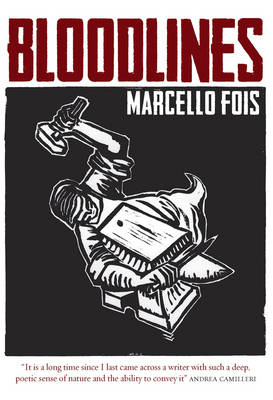
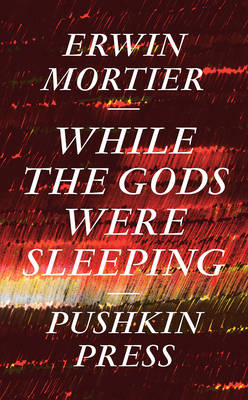
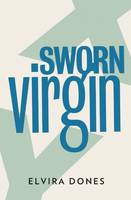
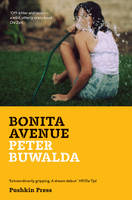
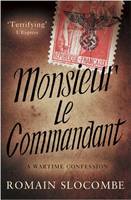
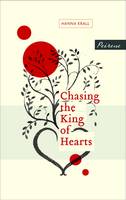
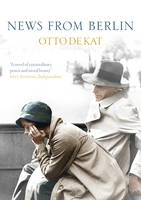

 See four people dining in a restaurant: they’re doing something inherently private – eating together, talking – yet in a public place. The boundary of personal space grows blurred when the floor manager leans in close to point out the different ingredients of each dish. The emphasis he places on provenance reminds us that this is not just a meal; it’s a performance, theatre on a plate – or so the restaurant would like its diners to think.
See four people dining in a restaurant: they’re doing something inherently private – eating together, talking – yet in a public place. The boundary of personal space grows blurred when the floor manager leans in close to point out the different ingredients of each dish. The emphasis he places on provenance reminds us that this is not just a meal; it’s a performance, theatre on a plate – or so the restaurant would like its diners to think.
 Hello, and welcome to the final stop on the Tomorrow Pamplona blog tour. Peirene Press have been offering bloggers the chance to ask questions about the book of its author, Jan van Mersbergen, and translator, Laura Watkinson.
Hello, and welcome to the final stop on the Tomorrow Pamplona blog tour. Peirene Press have been offering bloggers the chance to ask questions about the book of its author, Jan van Mersbergen, and translator, Laura Watkinson. The first thing I realised on reading Jekyll and Hyde was that I didn’t know the story; I knew the transformation, the dual identity, but not the tale built around it. In fact, the reading of the book turned out to be in large part an exercise in having my preconceptions overturned.
The first thing I realised on reading Jekyll and Hyde was that I didn’t know the story; I knew the transformation, the dual identity, but not the tale built around it. In fact, the reading of the book turned out to be in large part an exercise in having my preconceptions overturned. An interesting collection of stories whose characters are frequently dealing with loss, secrets, and troubled relationships. What I find particularly striking in many of the pieces is the way Black foregrounds a particular plot thread that reflects, comments on, or interacts in some way with the relationship situation going on elsewhere.
An interesting collection of stories whose characters are frequently dealing with loss, secrets, and troubled relationships. What I find particularly striking in many of the pieces is the way Black foregrounds a particular plot thread that reflects, comments on, or interacts in some way with the relationship situation going on elsewhere.
Recent Comments